| 1 February |
• yesterday • tomorrow |
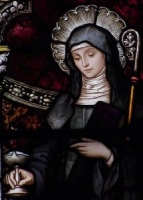
• Brigid of Kildare
• Brigid of Cell Dara
• Brigid of the Isles
• Mary of the Gael
• Bride, Bridget, Brigit, Ffraid
10 June (translation of relics)
Daughter of Dubtach, pagan Scottish king of Leinster, and Brocca, a Christian Pictish slave who had been baptized by Saint Patrick. Just before Brigid's birth, her mother was sold to a Druid landowner. Brigid remained with her mother till she was old enough to serve her legal owner Dubtach, her father.
She grew up marked by her high spirits and tender heart, and as a child, she heard Saint Patrick preach, which she never forgot. She could not bear to see anyone hungry or cold, and to help them, often gave away things that were Dubtach's. When Dubtach protested, she replied that "Christ dwelt in every creature". Dubtach tried to sell her to the King of Leinster, and while they bargained, she gave a treasured sword of her father's to a leper. Dubtach was about to strike her when Brigid explained she had given the sword to God through the leper, because of its great value. The King, a Christian, forbade Dubtach to strike her, saying "Her merit before God is greater than ours". Dubtach solved this domestic problem by giving Brigid her freedom.
Brigid's aged mother was in charge of her master's dairy. Brigid took charge ,and often gave away the produce. But the dairy prospered under her (hence her patronage of milk maids, dairy workers, cattle, etc.), and the Druid freed Brigid's mother.
Brigid returned to her father, who arranged a marriage for her with a young bard. Bride refused, and to keep her virginity, went to her Bishop, Saint Mel of Ardagh, and took her first vows. Legend says that she prayed that her beauty be taken from her so no one would seek her hand in marriage; her prayer was granted, and she regained her beauty only after making her vows. Another tale says that when Saint Patrick heard her final vows, he mistakenly used the form for ordaining priests. When told of it he replied, "So be it, my son, she is destined for great things."
Her first convent started c.468 with seven nuns. At the invitation of bishops, she started convents all over Ireland. She was a great traveller, especially considering the conditions of the time, which led to her patronage of travellers, sailors, etc. Brigid invented the double monastery, the monastery of Kildara, which means Church of the Oak, that she ran on the Liffey river being for both monks and nuns. Saint Conleth became its first bishop; this connection and the installation of a bell that lasted over 1000 years apparently led to her patronage of blacksmiths and those in related fields.
453 at Faughart, County Louth, Ireland
• 1 February 523 at Kildare, Ireland of natural causes
• interred in the Kildare cathedral
• relics transferred to Downpatrick, Ireland in 878 where they were interred with those of Saint Patrick and Saint Columba of Iona
• relics re-discovered on 9 June 1185
• head removed to Jesuit church in Lisbon, Portugal
fiery arrow (= brigid)
Ireland • babies • blacksmiths • boatmen • cattle • chicken farmers children whose parents are not married • dairy workers • dairymaids • fugitives • infants • mariners • midwives • milk maids • newborn babies • nuns • poets • poultry • poultry farmers • poultry raisers • printing presses • sailors • scholars • travellers • watermen • Douglas, Lanarkshire, Scotland • Ivrea, Turin, Italy • Leinster, Ireland • diocese of Kildare, Ireland
• abbess, usually holding a lamp or candle, often with a cow nearby
• abbess with her hand on an altar
• holding a cross with a flame over her head
• books
• holy cards
• medals and pendants
• rosaries
• other items
I would like the angels of Heaven to be among us.
I would like an abundance of peace.
I would like full vessels of charity.
I would like rich treasures of mercy.
I would like cheerfulness to preside over all.
I would like Jesus to be present.
I would like the three Marys of illustrious renown to be with us.
I would like the friends of Heaven to be gathered around us from all parts.
I would like myself to be a rent payer to the Lord; that I should suffer distress, that he would bestow a good blessing upon me.
I would like a great lake of beer for the King of Kings.
I would like to be watching Heaven's family drinking it through all eternity.
– Saint Brigid
O Glorious Saint Brigid, Mother of the Churches of Erin, patroness of our missionary race, wherever their lot may be cast, be thou our guide in the paths of virtue, protect us amid temptation, shield us from danger. Preserve to us the heritage of chastity and temperance; keep ever brightly burning on the altar of our hearts the sacred Fire of Faith, Charity, and Hope, that thus we may emulate the ancient piety of Ireland's children, and the Church of Erin may shine with peerless glory as of old. Thou wert styled by our fathers "The Mary of Erin," secure for us by thy prayers the all-powerful protection of the Blessed Virgin, that we may be numbered here among her most fervent clients, and may hereafter merit a place together with Thee and the countless Saints of Ireland, in the ranks of her triumphant children in Paradise. Amen. – Cardinal Patrick Francis Moran
https://catholicsaints.info/saint-brigid-of-ireland/

• Tryphon of Camposede
• Tryphon of Campsada
• Tryphon of Kampsade
• Tryphon of Lampsakos
• Tryphon of Phrygia
• Tryphon the Martyr
• Trypho • Trifon • Trifone • Tripun
• 10 November (translation of relics)
• 13 January (translation of relics)
Raised in a Christian family, his father died when the boy was very young, he was raised by his mother Eukaria, and he worked as a goose-herd in his youth. Had a gift of healing both human and animals. Healed the demonic possession of the daughter of Emperor Gordian III; the demon appeared in the form of a black dog before being forced to admit his deeds and then vanishing. Tryphon's prayers turned away a swarm of locusts that threatened his village's grain harvest. A persuasive speaker and catechist, he brought many to the faith, including pagan imperial officials. Arrested, tortured and martyred in the persecutions of Decius.
c.222 at Kampsade, Phrygia (in modern Turkey)
• beheaded c.251 in Nicaea, Bithynia, Asia Minor (modern Iznik, Turkey)
• buried in Kampsade, Phrygia
• relics transferred to Constantinople
• relics transferred to Venice, Italy in 809; en route, bad weather forced the transport ship aground at modern Kotor, Montenegro where the relics were housed in the local cathedral
• relics transferred to Rome, Italy where they were housed in the church of San Trifon and the Santo Spirito hospital in Sassi
• in 1566 Pope Pius V transferred the relics to the church of Sant'Agostino in Rome
• some relics enshrined in the Saint Triphon church in the Naprudna district of Moscow, Russia
against evil spirits • against insects • birds • falconers • gardeners • grain • harvested crops • husbandmen
places in Italy: Adelfia • Alessandria • Alessano • Cerignola • Marzano di Nola • Monacizzo • Montrone • Onano • Pulsàno
Cattaro, Dalmatia • Iznik, Turkey • Kotor, Montenegro • Moscow, Russia • Nicaea, Bithynia
• exorcising a demon from a girl in a palace
• goose (referring to his occupation)
• lilies (reported to have bloomed out of season when his relics where moved)
• boy defeating a dragon (emblematic of chasing out devils and evil)
• boy receiving a crown of flowers from an angel (referring to his end as a martyr)
• black dog (the form a demon took upon being driven out)
• man being burned with torches
• man holding a small cross
• man with a falcon on his arm
• man with his feet nailed to the ground
https://catholicsaints.info/saint-tryphon-of-lampsacus/
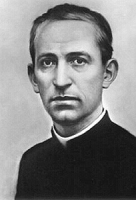
Aloisius Variara
Son of Peter Variara, who had been brought to a deep devotion to the Church following a mission conducted by Saint John Bosco. A student in a Salesian school, Luigi met John Bosco as a young man. The boy joined the Salesians in August 1891, making his vows in 1892.
In 1894 he joined a Salesian mission to leper colonies in Colombia. Ordained in Colombia. Founded a small town to raise the children of the outcast lepers. Spiritual director of the Sodality of the Children of Mary. Founded the Daughters of the Sacred Hearts of Jesus and Mary in Colombia in 1905, a congregation that included the daughters of lepers, girls who were drawn to religious life, but had trouble being accepted by other orders; it received official recognition on 24 December 1983.
After a brief visit to his family in home town, he returned to work in Bogota, Agua de Dios, and Caribbean Barranquilla. Toward the end of his life his health began to give way, and the only thing that kept him going were the hours he spent in Eucharistic devotion and prayer.
15 January 1875 at Viarigi (Asti), Italy
1 February 1923 in Colombia of natural causes
14 April 2002 by Pope John Paul II
From Italy, and from the diocese of Asti, the Salesian Father Luis Variara, went to Colombia, faithful follower of the merciful Jesus and close to the suffering. From the first moment of his arrival, he dedicated his youthful energy and his many gifts to the service of the lepers. The first Salesian priest to be ordained in Colombia, he succeeded in bringing together around him a group of consecrated women, some of whom were themselves lepers or the daughters of lepers and for this reason, not welcome in other religious orders. In time, this group became the Congregation of the Daughters of the Sacred Hearts of Jesus and Mary, a flourishing order that has houses in several countries. – from the beatification homily of Pope John Paul II
https://catholicsaints.info/blessed-luigi-variara/
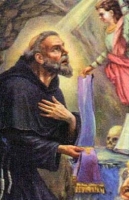
• Andrew of Conti
• Andrew of Anagni
• Andrew of Comitibus
3 February (Franciscans)
Member of the royal family of Anagni, Italy. Nephew of Pope Alexander IV. Franciscan lay-brother. Hermit in the Apennines mountains in Italy. Known as a mystic, he was routinely visited and attacked by demons his whole life. Pope Boniface VIII wished to make him a cardinal, but Andrew declined, citing his inadequacy and his love of solitude.
1240 in Anagni, Italy
1 February 1302 at his Mount Scalambra hermitage near Piglio, Italy of natural causes
interred in the church of San Lorenzo of the Mount Scalambra convent
tomb damaged by bombing on 12 May 1944
relics re-enshrined in the same church on 8 February 1945
11 December 1724 by Pope Innocent XIII (cultus confirmed)
against demons
He was very compassionate, and his general tenderness extended eveh to animals. One day he was ill, and his friends brought him some little birds, killed in shooting, in order to tempt him to eat, when the Saint felt sorry for the poor little creatures lying lifeless and bleeding before him. He made the sign of the cross over them, and prayed God to receive them. As soon as he had finished his prayer, the birds began to move, spread their wings, and flew away. – Monsignor Paul Guérin, "The Little Bollandists", 1882
https://catholicsaints.info/blessed-andrew-of-segni/

• Sigebert the Younger
• Sigisbert...
Born a prince the eldest son of King Dagobert I. Brother of King Clovis II. Baptized by Saint Amand of Maastricht at Orléans, France. Educated by Blessed Pepin of Landen. His father died in 638 which made the boy king of Austrasia. In 640 he tried to add Thuringia to his kingdom, leading his own army at the age of ten, but was defeated by Duke Radulph. Following this and some other political bungles, the mayor of the palace, Grimoald, began to assume more power, and eventually became the true ruler of Austrasia; Sigebert became known as a "do nothing" king who withdrew from the political scene. Spiritual student of Saint Cunibert of Cologne. Father of Saint Dagobert II. Sigebert became known for his personal sanctity, his pious life in the royal court, and his works of charity; he built several hospitals, churches, homes for the poor, and monasteries, including Stavelot and Malmédy.
631
• 1 February 656 at Metz, France of natural causes
• relics housed in the cathedral of Nancy, France
• relics damaged and defiled during the French Revolution
Nancy, France
https://catholicsaints.info/saint-sigebert-iii-of-austrasia/
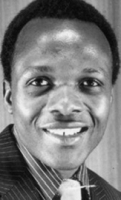
• Tshimangadzo Samuel Benedict Daswa
• Bakali
Married layman in the diocese of Tzaneen, South Africa. Member of the Lemba tribe, called "Black Jews" because they followed Jewish laws and traditions. Converted to Catholicism in 1963 and became very active in the Church. Teacher, catechist and worked with local youth; he combined all these works by checking on students who missed class, and helping their families when money ran low. Helped build the first Catholic church in his area. Principal of his school, popular local leader, and advisor to area civil authorities.
When his village was beset by a series of strong storms in late January 1990, the elders decided it was due to magic, and demanded a tax from all the residents to pay for magic to counter them; Benedict said storms were a natural phenomenon, and he wasn't paying anything to support anti–Christian superstition. Murdered by a mob for refusing to support the witchcraft plan.
16 June 1946 in Mbahe, Limpopo, South Africa as Bakali
beaten, stabbed and boiling water poured over him on 2 February 1990 in Mbahe, Limpopo, South Africa
• 13 September 2015 by Pope Francis
God, into your hands receive my spirit. – Benedict's last words
https://catholicsaints.info/blessed-benedict-daswa/
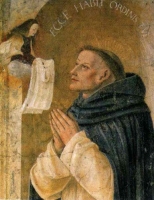
• Réginald de Saint-Gilles
• Reginaldo...
Priest. Professor of canon law at the Sorbonne in Paris, France. Dean of the collegiate church of Saint-Agnan in Orléans, France. While on pilgrimage in Rome, Italy in 1218, the future Pope Gregory IX introduced him to Saint Dominic de Guzman. Reginald was moved by Dominic's preaching, fascinated by some of his ideas, and the two became close friends. Following a vision of the Blessed Virgin Mary presenting him in a Dominican habit, and his miraculous cure from the vision, Reginald joined the Dominicans, receiving the habit from Saint Dominic. The two travelled to Bologna, Italy where Reginald impressed many with his preaching, and served as Dominican prior in the area when Dominic travelled on. Prior of the Dominican convent of Saint-Jacques in Paris in 1219 where he was known for his preaching, and where he led many to join the Order. Friend of Blessed Jordan of Saxony, who wrote about him and the fire of his preaching.
c.1180 in Orléans, France
• early February 1220 in Paris, France of natural causes
• buried in the Benedictine cemetery of Notre-Dame-des-Champs in Paris
1875 by Pope Pius IX (cultus confirmation)
https://catholicsaints.info/blessed-reginald-of-orleans/
Precord, Precordio, Precort, Précore
• 22 July at Vailly-sur-Aisne, France (translation of relics)
• 5 June at Corbie Abbey (translation of relics)
Sixth century man who travelled from the British Isles to live as a hermit on a hillside in the Valley-sur-Aisne area, and a travelling preacher in the Soissons region of France. He was drawn to the area by the preaching of Saint Remigius of Rheims, who appreciated and supported the preaching of Precordius.
• buried on the hill where his hermitage stood in the area of Valley-sur-Aisne, France
• a chapel was built on the site of his death; it became a pilgrimage destination for centuries
• relics taken to England in 940 by a priest named Thiard
• some relics returned to Valley-sur-Aisne in 1466
• relics transferred by Abbot Jean Poncelet from Valley-sur-Aisne to Corbie Abbey in 1633
• some relics enshrined in the collegiate church of Saint Florent de Roye in 1658; a fountain of healing waters was built near the church
• the chapel was destroyed in the persecutions of the French Revolution
• some relics enshrined in the church of Our Lady of Vailly-sur-Aisne
https://catholicsaints.info/saint-precordius/

• Giovanna Francesca
• Giovanna Francesca della Visitazione
Anna's father died when she was very young, and though she grew up in poverty, her family always had time to care for those worse off than themselves. She studied with the Sisters of Saint Charles in Lyon, France. Following the death of her mother and brother, Anna entered the novitiate of the Sisters in Lyon in 1863, taking the name Sister Giovanna Francesca of the Visitation. The Congregation was dissolved in 1871, and Sister Giovanna lived for a while with her father's family. In 1874 she founded the Little Servants of the Sacred Heart of Jesus to care for the sick poor; the Servants continue their good work today.
29 August 1843 in Annecy, Haute-Savoie, kingdom of Sardinia (part of modern France)
• 1 February 1888 in Turin, Italy of natural causes
• relics enshrined at the Little Servants mother house in Valsalice, Turin
1 November 1975 by Pope Paul VI
https://catholicsaints.info/blessed-anna-michelotti/

Orso • Ours
Evangelized the area of Digne, France. Fought Arianism. Archdeacon under Bishop Jucundus of Aosta, Italy. When the Arian Ploziano became bishop of Aosta, Ursus and several other canons relocated to the church of Saint Peter just outside Aosta; the site is now known as Sant' Orso, the church is the collegiate church of Saint Peter and Saint Ursus.
Ireland
• 6th century in Aosta, Italy of natural causes
• relics in the collegiate church in Aosta
against faintness • against kidney disease • against rheumatism • children who die before Baptism • invoked in childbirth
Barcelonnette, France • Cogne, Italy • Ivrea, Turin, Italy
• archdeacon holding a staff and book, with birds on his shoulder
• cleric giving shoes to poor people
• cleric striking water from a rock
• man in a religious habit wearing a fur pelisse
https://catholicsaints.info/saint-ursus-of-aosta/
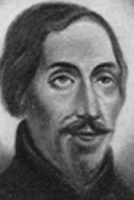
Henry Mowse
• 25 October as one of the Forty Martyrs of England and Wales
• 29 October as one of the Martyrs of Douai
Convert. Studied for the priesthood in Rome, Italy. Joined the Jesuits in 1626. Worked as a covert priest in London, England. Worked with plague victims in 1636, catching the plague himself – and recovering from it. Betrayed to the authorities by an informer, he was briefly imprisoned in 1638. He ministered to people around the countryside of southern England for years. Arrested and convicted of the crime of Catholicism in 1647. One of the Forty Martyrs of England and Wales.
1549 at Brome, Suffolk, England
hanged, drawn, and quartered on 1 February 1645 at Tyburn, London, England
25 October 1970 by Pope Paul VI
https://catholicsaints.info/saint-henry-morse/
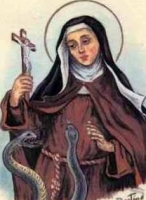
Verdiana • Viridiana
Member of an impoverished but noble family, she was drawn to religious life from an early age. Pilgrim to Santiago de Compostela, Spain. Anchoress at age 26, living 34 years in a tiny cell at the chapel of Saint Anthony of Padua, Florence, Italy. Received the habit of the Secular Franciscan Order from Saint Francis himself in 1211. Legend says that when a famine struck in the area of her home town, she gave away some beans her uncle had already sold; the next day, after the poor had taken their fill, the storage bins miraculously refilled.
1182 at Castelfiorentino, Florence, Italy
1242 at Florence, Italy while at prayer
1533 by Pope Clement VII (cultus confirmed)
Castelfiorentino, Italy • Florence, Italy
snakes, serpents, vipers
https://catholicsaints.info/saint-veridiana/
• Ela of Laycock
• Ela of Salisbury
• Ella...
Born to the English nobility, the daughter of William FitzPatrick, 2nd Earl of Salisbury, and Eléonore de Vitré. Married to William Longespée, half-brother of King Richard I and King John, and the couple had at least eight children. Widowed on 7 March 1226, Ela took over the post of High Sheriff of Wiltshire for two years. In 1229 she founded the Carthusian house in Hinton, England, and the Augustinian convent at Lacock, England. In 1238 she gave up her status in the world and became a nun at Lacock. She served as abbess of the house from 1240 to 1257 when she withdrew from the work due to age and ill health, spending her remaining years as a prayerful sister.
1187 in Amesbury, Wiltshire, England
• 24 August 1261 at Labock Abbey in Wiltshire, England of natural causes
• buried at Lacock Abbey
https://catholicsaints.info/blessed-ela-of-lacock/
• Giovanni della Graticola
• John of the Grate
• John of the Gridiron
Benedictine Cistercian monk at Clairvaux Abbey, professing his vows under Saint Bernard. Abbot at Guingamp, France. Founder and abbot of monasteries at Buzay and Bégard in Brittany (in modern France). Noted as an able administrator, always fair and just with his brother monks. Bishop of Aleth (modern Saint-Servan, France) from 1144, a see that was later moved to Saint-Malo. Introduced the Canons Regular to his diocese c.1150. The de Craticula (of the Grating) part of his name derives from the metal railings that surround his shrine.
1098 in Brittany (in modern France)
1163 of natural causes
1517 by Pope Leo X (cultus confirmed)
https://catholicsaints.info/blessed-john-of-the-grating/
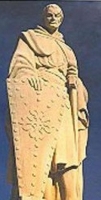
• Raymond of Calatrava
• Ramon Sierra
• Raymond Sierra
• Raimundo de Fitero
Priest. Canon of the cathedral of Tarazona, Spain. Cistercian monk at the Escaladieu Abbey in Gascony, France. Founded the abbey of Fitero in Spanish Navarre, and served as its first abbot. Founded the Benedictine and Cistercian military Order of Calatrava to defend Calatrava la Vieja, Spain from invading Moors after the city was abandoned by the Knights Templar.
Aragon region of Spain
1163 in Ciruelos, Toledo, Spain of natural causes
1719 (cultus confirmed)
https://catholicsaints.info/saint-raymond-of-fitero/
• Anthony Manzoni
• Anthony the Pilgrim
• Antony...
Born to a wealthy, pious family; two of his sisters became nuns. As soon as he had legal control of his fortune, Anthony gave it away to the poor; he was shunned by his family and friends, even his sisters the sisters. He wandered across Europe, a pilgrim from shrine to shrine, and then to Jerusalem. He finally returned to Padua, Italy and spent the rest of his life as a hermit near a church, living off alms.
1237 in Padua, Italy
• 1267 in Padua, Italy of natural causes
• miracles reported at his grave
http://catholicsaints.info/blessed-anthony-manzi/
Conchubhar Ó Duibheanaigh
20 June as one of the Irish Martyrs
Franciscan Friars Minor (Observants) priest. Chosen bishop of the diocese of Down and Connor, Ireland on 13 May 1582 by Pope Gregory XIII. Arrested in 1588 in the anti–Catholic panic following the failed invasion by the Spanish Armada. Arrested again in 1611, he is one of the Irish Martyrs.
c.1530 in Ulster, Armagh, Ireland
hanged on 1 February 1611 in Dublin, Ireland
27 September 1992 by Pope John Paul II in Rome, Italy
https://catholicsaints.info/blessed-conor-odevany/
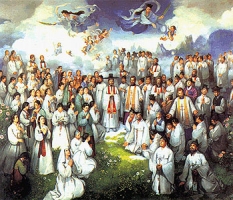
• Yohan Yi Mun-u
• John Yi Mun-u
• Giovanni Yi Mun-u
20 September as one of the Martyrs of Korea
Married layman in the apostolic vicariate of Korea. Ministered to the poor and gave Christian burial to martyrs. Martyr.
1810 in Inchon, Gyeonggi-do, South Korea
beheaded on 1 February 1840 in Dangkogae, Seoul, South Korea
6 May 1984 by Pope John Paul II
https://catholicsaints.info/saint-ioannes-yi-mun-u/
Born to a poor peasant family. Worked as a shepherd in his youth. Priest. Monk. Abbot. Bishop of Avranches, France. In his later years, he resigned his see and returned to monastic life.
at Cotentin, Normandy, France
• c.690 of natural causes
• relics at Rouen, France
against fever • against migraine • drapers • hatmakers, hatters, milliners • silk workers • weavers • wool manufacturers • wool weavers
bishop with a horse nearby
https://catholicsaints.info/saint-severus-of-avranches/

• Baolo Hong Yeong-ju
• Paolo Hong Yong-ju
20 September as one of the Martyrs of Korea
Layman in the apostolic vicariate of Korea. Catechist. Martyr.
1802 Seosan, Chungcheong-do, South Korea
beheaded on 1 February 1840 in Dangkogae, Seoul, South Korea
6 May 1984 by Pope John Paul II
https://catholicsaints.info/saint-paulus-hong-yong-ju/

Bareubara Choe Yeong-i
20 September as one of the Martyrs of Korea
Young married lay woman in the apostolic vicariate of Korea. Martyr.
1819 in Seoul, South Korea
beheaded on 1 February 1840 in Dangkogae, Seoul, South Korea
6 May 1984 by Pope John Paul II
https://catholicsaints.info/saint-barbara-choe-yong-i/
During the persecutions of Decius, Asclepiades and fifteen fellow parishioners, hearing they were about to be arrested, spent the night of 22-23 February 250 in prayer; they were arrested in the morning at the end of Mass. They had put on their own chains and shackles to make it obvious that they were prisoners, and not going to aposticize. Asclepiades was racked and torn with hooks to make him sacrifice to pagan gods; he refused. Martyr.
burned at the stake on 12 March 250
https://catholicsaints.info/saint-asclepiades/
During the persecutions of Decius, Sabinus and fifteen fellow parishioners, hearing they were about to be arrested, spent the night of 22-23 February 250 in prayer; they were arrested in the morning at the end of Mass. They had put on their own chains and shackles to make it obvious that they were prisoners, and not going to aposticize. Racked and torn with hooks to make him sacrifice to pagan gods; he refused. Martyr.
burned at the stake on 12 March 250
https://catholicsaints.info/saint-sabinus/
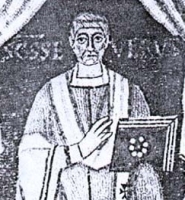
Bishop of Ravenna, Italy in 283. Attended the Council of Sardica in 344.
Ravenna, Italy
• c.348
• at some point his relics were taken to Pavio
• in 836 the relics were transferred to Erfurt, Germany
hatters
https://catholicsaints.info/saint-severus-of-ravenna/
Kinnia
Princess of Ulster, Ireland. Converted to Christianity by Saint Patrick; when she became a nun, Saint Patrick gave her the veil. Greatly honoured in County Louth, Ireland.
Irish
5th century
https://catholicsaints.info/saint-cinnia-of-ulster/
Paul fled his home to escape the Germanic tribes invading the northern provinces of the Roman empire. He became a hermit near Arles, France. Reluctant bishop of the former diocese of Augusta Tricastinorum (modern Saint-Paul-Trois-Châteaux), Dauphine (in modern France).
in Rheims, Gaul
c.405 of natural causes
https://catholicsaints.info/saint-paul-of-trois-chateaux/
Brigid the Younger
Sister of Saint Andrew of Fiesole. Hermitess in the Apennines mountains of Italy. Legend says that when her brother was dying, angels carried her to his deathbed for a final visit.
9th century of natural causes
• with Saint Andrew of Fiesole
• being carried by angels
https://catholicsaints.info/saint-brigid-of-fiesole/

Cecilio
First bishop of Granada, Spain. One tradition says that he was a disciple of Saint James the Greater, and was consecrated as bishop by Saint Peter the Apostle.
Granada, Spain
https://catholicsaints.info/saint-cecilius-of-granada/
20 June as one of the Irish Martyrs
Bishop in Ireland. Martyr.
c.1530 in Ulster, Armagh, Ireland
hanged on 1 February 1611 in Dublin, Ireland
27 September 1992 by Pope John Paul II in Rome, Italy
https://catholicsaints.info/blessed-patrick-olougham/
Dardulacha, Darlugdach, Darulagdach, Derlugdach, Derlugdacha, Lugdach
Spiritual student of Saint Brigid at her convent in Kildare, Ireland. She succeeded Saint Brigid as abbess of the house.
c.524 of natural causes
https://catholicsaints.info/saint-darlaugdach-of-kildare/
Agreve, Agrippano, Agripanus
Seventh century bishop of Le Puy-en-Velay, France. Pilgrim to Rome, Italy. On his way home he was murdered by idol worshippers.
beheaded at Chiniac, Vivarais, Aquitaine (modern Saint-Agrève, France)
https://catholicsaints.info/saint-agrepe/
Hierlath
Spiritual student of Saint Patrick. Bishop of Armagh, Ireland. Involved in the monastic expansion and general missionary work in the British Isles.
Irish
c.480 of natural causes
https://catholicsaints.info/saint-jarlath/
Torquato, Torquat
Mid-4th century bishop of the diocese of Saint-Paul-Trois-Châteaux, France.
https://catholicsaints.info/saint-torquatus-of-saint-paul-trois-chateaux/
Benedictine monk at Landevennec, Brittany, France. Chaplain to the nuns of Saint Sulpice, Rheims, France.
1129 of natural causes
https://catholicsaints.info/saint-autbert-of-landevennec/
Monk. Abbot. Third bishop of Salzburg in modern Austria. Known for supporting monastic life in his diocese.
1 February 678
https://catholicsaints.info/saint-ansologus-of-salzburg/
Crewenna
Assisted with Saint Breaca's missionary work in Cornwall, England. The town of Crowan was named for him.
5th century
https://catholicsaints.info/saint-crewanna/
Franciscan tertiary in Cortona, Italy in the late 13th and early 14th centuries.
https://catholicsaints.info/blessed-giovannello-of-cortona/
Ascetic hermit in Seligenstadt, Germany.
c.1048
http://catholicsaints.info/saint-clarus-of-seligenstadt/
https://catholicsaints.info/109-spanish-claretian-martyrs/
Forty-seven Christians executed together for their faith in the anti-Catholic persecution of the French Revolution.
• Anne-François de Villeneuve
• Anne Hamard
• Catherine Cottenceau
• Charlotte Davy
• François Bellanger
• François Bonneau
• François Michau
• François Pagis epouse Railleau
• Gabrielle Androuin
• Jacquine Monnier
• Jeanne Bourigault
• Jeanne Fouchard épouse Chalonneau
• Jeanne Gruget veuve Doly
• Jeanne-Marie Sailland d'Epinatz
• Louise-Aimée Dean de Luigné
• Louise-Olympe Rallier de la Tertinière veuve Déan de Luigné
• Madeleine Blond
• Madeleine Perrotin veuve Rousseau
• Madeleine Sailland d'Epinatz
• Marguerite Rivière epouse Huau
• Marie Anne Pichery épouse Delahaye
• Marie-Anne Vaillot
• Marie Cassin épouse Moreau
• Marie Fausseuse épouse Banchereau
• Marie Gallard épouse Quesson
• Marie Gasnier épouse Mercier
• Marie Grillard
• Marie-Jeanne Chauvigné épouse Rorteau
• Marie Lenée épouse Lepage de Varancé
• Marie Leroy
• Marie Leroy épouse Brevet
• Marie Roualt épouse Bouju
• Odilia Baumgarten
• Perrine Androuin
• Perrine Besson
• Perrine-Charlotte Phelippeaux épouse Sailland d'Epinatz
• Perrine Grille
• Perrine Ledoyen
• Perrine Sailland d'Epinatz
• Renée Cailleau épouse Girault
• Renée Grillard
• Renée Martin épouse Martin
• Renée Valin
• Rose Quenion
• Simone Chauvigné veuve Charbonneau
• Suzanne Androuin
• Victoire Bauduceau epouse Réveillère
1 February 1794 in Avrillé, Maine-et-Loire, France
19 February 1984 by Pope John Paul II at Rome, Italy
https://catholicsaints.info/martyrs-of-avrille/
CatholicSaints.Info Portable Edition